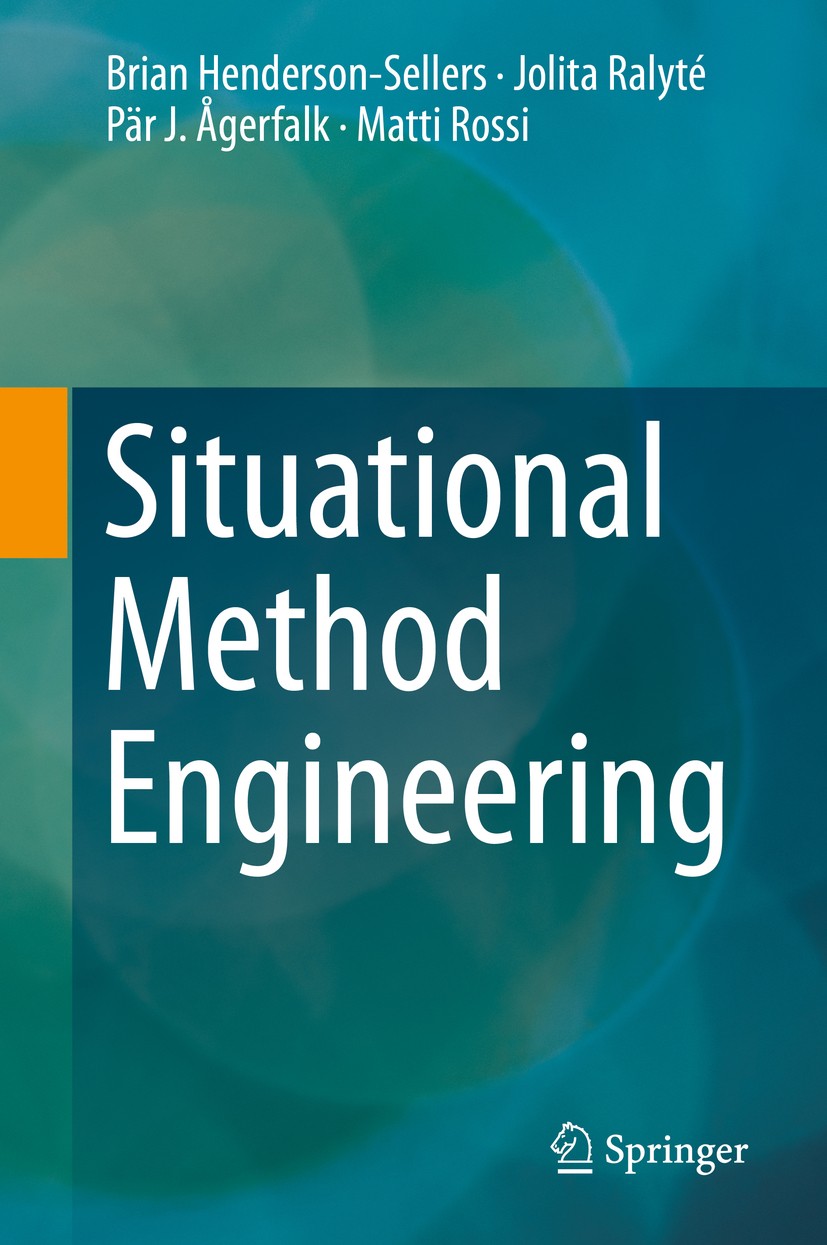| 书目名称 | Situational Method Engineering | | 编辑 | Brian Henderson-Sellers,Jolita Ralyté,Matti Rossi | | 视频video | http://file.papertrans.cn/869/868091/868091.mp4 | | 概述 | The first comprehensive summary of what situational method engineering is and how to apply it.A formal meta-model allows readers to perform quality assessment for customized methods.Illustrates succes | | 图书封面 |  | | 描述 | .While previously available methodologies for software – like those published in the early days of object technology – claimed to be appropriate for every conceivable project, situational method engineering (SME) acknowledges that most projects typically have individual characteristics and situations. Thus, finding the most effective methodology for a particular project needs specific tailoring to that situation. Such a tailored software development methodology needs to take into account all the bits and pieces needed for an organization to develop software, including the software process, the input and output work products, the people involved, the languages used to describe requirements, design, code, and eventually also measures of success or failure..The authors have structured the book into three parts. Part I deals with all the basic concepts, terminology and overall ideas underpinning situational method engineering. As a summary of this part, they present a formal meta-model that enables readers to create their own quality methods and supporting tools. In Part II, they explain how to implement SME in practice, i.e., how to find method components and put them together and how | | 出版日期 | Book 2014 | | 关键词 | Development Methodology; Domain Ontologies; ISO/IEC 24744; Meta-Modeling; MetaEdit+; Method Engineering; M | | 版次 | 1 | | doi | https://doi.org/10.1007/978-3-642-41467-1 | | isbn_softcover | 978-3-662-52263-9 | | isbn_ebook | 978-3-642-41467-1 | | copyright | Springer-Verlag Berlin Heidelberg 2014 |
The information of publication is updating

|
|
 |Archiver|手机版|小黑屋|
派博传思国际
( 京公网安备110108008328)
GMT+8, 2026-2-8 05:25
|Archiver|手机版|小黑屋|
派博传思国际
( 京公网安备110108008328)
GMT+8, 2026-2-8 05:25


